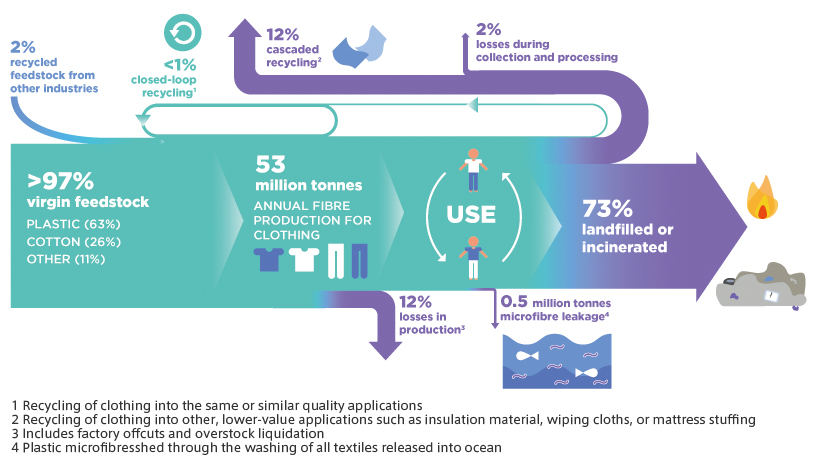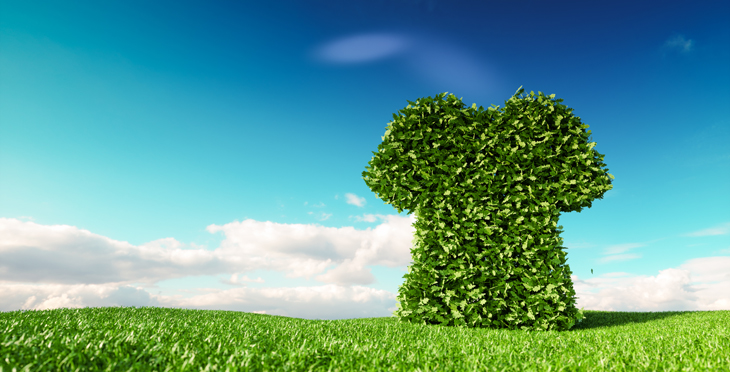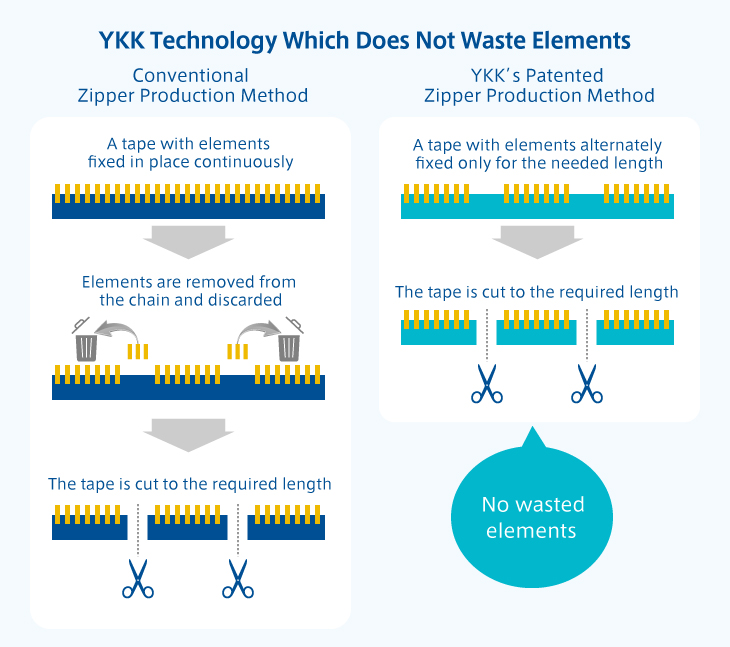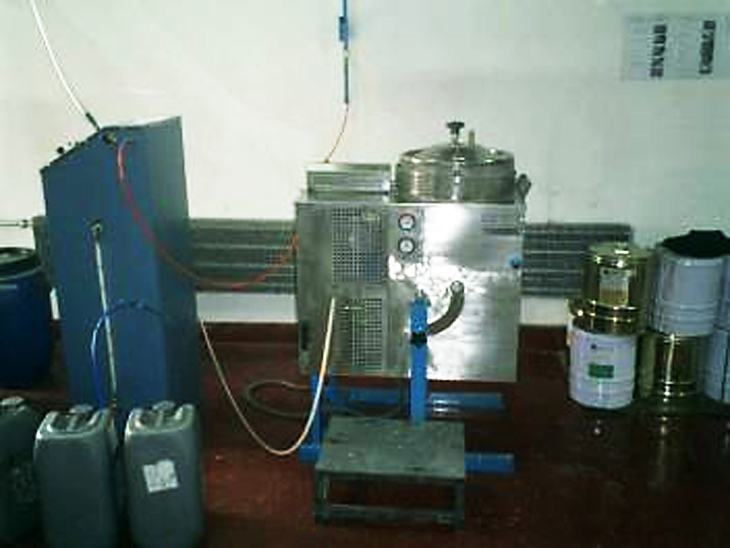Emission Reduction2018.10.19
It is often the small, ingenious efforts that change the world
Episode 2
The fashion supply chain
One characteristic of the fashion industry is its complex supply chain. Apparel production starts with yarn, which is then woven into fabric, and is then cut and sewn into clothing. This supply chain is no longer a local matter, but now extends into many countries across the globe. In addition, this highly structured supply chain drives the production of an immense variety of apparel and related products. This supply chain also supports a richly creative fashion culture and is an indispensable element for the industry's further diversification.

A complex supply chain and wastage
Consumers around the world are beginning to understand that, along with the development of the fashion industry, comes the potential for significant adverse impact on the environment as a result of the industry's complex supply chain and the need to produce a wide variety of products.
According to research by the Ellen MacArthur Foundation, the fashion industry produces 53 million tons of products annually, but the majority of it, 73%, is either incinerated or ends up as landfill.*1
 Sources:www.ellenmacarthurfoundation.org
Sources:www.ellenmacarthurfoundation.org
Efforts toward a sustainable society
National governments, industry, and individual brands around the world are starting to take various actions to deal with this issue. For example, the UK Parliament Environmental Audit Committee launched an inquiry into the domestic impact of the fashion industry, examining such matters as carbon emissions, waste, resource and water use, and the clothing lifecycle. The trend to seriously tackle environmental issues like fashion industry waste is acceleratng.*2

YKK – engaged in waste reduction for more than 60 years
YKK has already developed technology that enables the zero discharge of metal element waste during the zipper production process. This is not even a recent achievement—in fact, it began about 65 years ago, before YKK had even expanded its business overseas. It was YKK's first technology to be patented. Prior to this technology, metal elements (teeth) had to be first fixed in place along the full length of the tape. Then, in a different process, elements were removed from the tape in certain places to allow for the attachment of other zipper parts to complete the finished zipper. Discarded elements were treated as waste.
YKK developed the technology to manufacture in such a way that metal elements are only fixed in place for the required length so that the zipper could be completed in a single, integrated production process. The chain machine was modified to eliminate the generation of wasteful metal elements. Such comprehensive elimination of waste is not limited to this once patented technology though; it is YKK’s basic stance toward the environment—a way of thinking that has spread to various other production processes at YKK.

Working with customers to create a sustainable society
A more recent example is the introduction of a vacuum thermal recycling system at Dalian YKK Zipper Co., Ltd. in China that enables the recovery of more than 75% of the cleaning solvent used. The waste is collected in a solid form, leading to the reduction of waste emissions.
To achieve sustainable procurement, YKK's fastening business endeavors to make use of fewer resources and achieve greater efficiency at all its manufacturing plants in various countries and regions around the world. The entire YKK Group is engaged in the reduction of industrial waste and aims to achieve a waste recycling rate of 79% by 2020.

YKK also carries out an annual review of the licenses of our contracted waste disposal companies at 51 overseas plants. This type of self-regulation is one way that YKK hopes to enhance our customers' brands.

Sources:
*1
https://www.ellenmacarthurfoundation.org/publications/a-new-textiles-economy-redesigning-fashions-future
*2
https://www.parliament.uk/business/committees/committees-a-z/commons-select/environmental-audit-committee/news-parliament-2017/sustainability-of-the-fashion-industry-inquiry-launch-17-19/